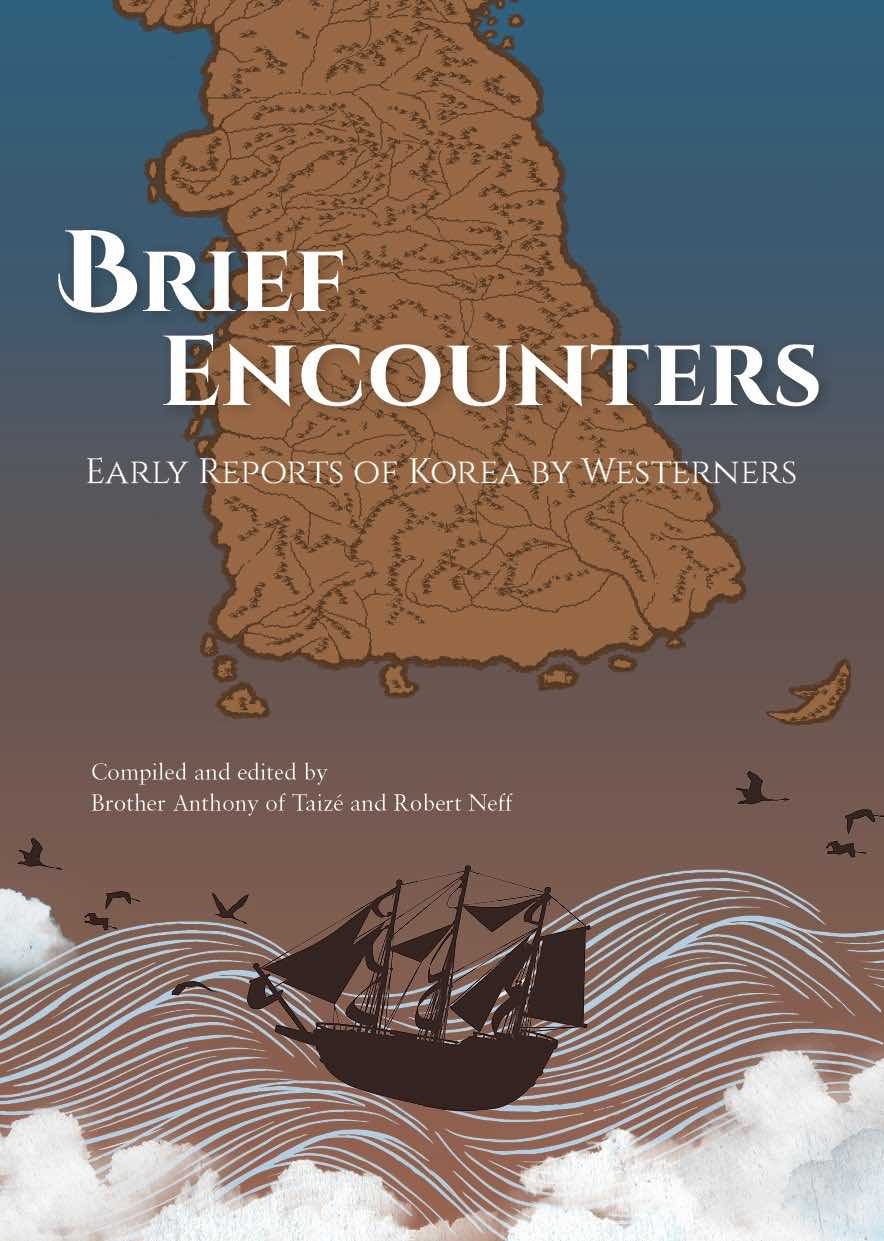[Meet the Author] Brief Encounters: Early Reports of Korea by Westerners

Brief Encounters
By Matthew Fennell, Contributing Writer
October 2017 - Before Korea opened its doors to the world in the late nineteenth century, very few Westerners had experienced life on the Peninsula. A new book, Brief Encounters: Early Reports of Korea by Westerners, by Brother Anthony of Taizé and Robert D. Neff is a compilation of visitor accounts to the country, originally published in books or newspapers, that shed some light on the Hermit Kingdom. Robert D. Neff is a freelance writer and historical researcher specializing in Korean history during the late 19th and early 20th centuries. Asia Society Korea’s Matthew Fennell caught up with him to discuss this new release.
What was the inspiration behind wanting to publish a book about very early exploration to Korea?
There are several great books about traveling in Korea in the late 19th century including Isabella Bird Bishop’s, Korea and Her Neighbors; A. Henry Savage-Landor’s, Corea or Chosen: The Land of the Morning Calm; and, of course, various accounts published by missionaries. They are all fairly common and easily accessible, but what about the material that isn’t, due to its limited publication or the language it was written in (French and German)? It is this lesser-known material that we wanted to make available to the average person with an interest in early Korean-Western encounters.
Your anthology is a compilation of Westerners’ accounts of their visits to Korea. How were you able to get access to this information?
I guess the short answer would be through our hobbies. Brother Anthony, the co-author of the book, collects old books and magazines dealing with Korea and has a very impressive collection. I have a smaller collection but specialize in collecting narratives published in personal correspondences, newspapers, magazines, and government publications by shipwrecked sailors, naval officers, and wayward travelers.
I think we were both a little surprised at just how much material we have. Due to space limitations, we confined ourselves to accounts before 1884 and did not include a lot of the shipwrecks around Jeju Island or the early diplomatic attempts by Western nations prior to 1882. Perhaps we will do a second volume in the future.
Are there any stories from the book that stand out for you?
I tried to study French in high school but failed miserably – so miserably that my teacher told me I would be lucky to learn English. So for me, the accounts in French and German that Brother Anthony translated are especially valuable as they were unavailable to me in the past. My favorite story is the Wreck of the Narwal – a French whaling ship – in April 1851. The subsequent rescue of the crew was published in an English-language newspaper in Shanghai just weeks after it happened and was amusing as well as informative. I especially like the resourcefulness of the sailors who taught French to the Koreans in exchange for tobacco. When the rescue party arrived, they were confronted by Koreans who exhibited their proficiency by pointing upwards and exclaiming “Le Soleil” and looking down to cry “La Terre.”
From the impressions that you have collected, how welcome were foreign visitors to Korea at that time?
Well, I have heard Brother Anthony in the past joke that these early encounters were often shared with a good deal of alcohol and they definitely were. In fact, one of my favorite stories was when a naval vessel visited Jeju and a local Korean magistrate and his entourage – including several attractive young girls with long braided hair – were entertained with a generous supply of alcohol. The crew was somewhat shocked when they discovered that one of the ‘young girls’ needed to pass some of the alcohol and did so by standing up and urinating over the rail.
But there was a serious side to these early encounters. In the 19th century, it was widely believed that Koreans were violently disposed to anyone who had the misfortune to be cast upon their shores, and Hendrick Hamel’s account was cited as proof, but this was incorrect. Joseon Korea was nothing but humane to shipwrecked victims. Wrecks and their cargos were protected and looters were severely punished. After a couple of months, survivors were repatriated to China or Japan. Their treatment in Korea was described favorably, but that which they subsequently received in Japan and especially China was decidedly much worse.
While people in need were well treated, casual visitors were not welcomed. Some of these encounters ended in violence, but they were the exception and not the rule. Western powers used the pretext of guaranteeing the safe treatment of shipwrecked survivors to force Korea to open its doors to the outside world.
I think that is what is important about this book. It dispels a lot of these early misconceptions through the candid accounts of Westerners during their “Brief Encounters” in Korea.
